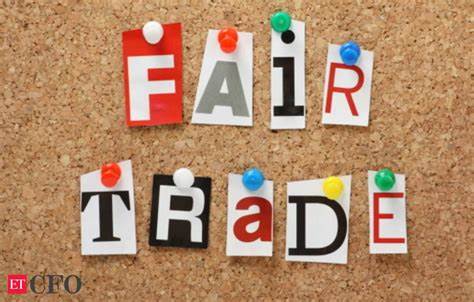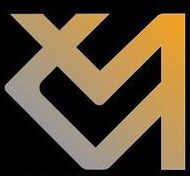
Cryptocurrency has come far from being an overused phrase now, it is just a part of our international money system. Whether individual investors, institutional investors, or somewhere in between, the people of this world are placing trades on digital assets. No two trades are created equal, and neither are all means right or moral.
So, what exactly makes a crypto trade “right” from the value standpoint? How can one trade with confidence that one’s actions remain aligned with principles such values as honesty, fairness, and responsibility?
In this guide, we will take you through the most important features that make a crypto trade ethical, with real, real-life examples to illustrate each point in action.
Table of Contents
1. The Foundation: Real Ownership and Tangible Value
The one most critical requirement for a healthy crypto trade is dealing with assets of real, proven value. The cryptocurrency you buy or sell must be widely accepted, have a clear use case, and have value by market consensus.
Good Example:
Ali invests in Ethereum (ETH) because he plans to use the money to pay gas to interact with a decentralized app. Ethereum is established, listed on solid exchanges, and used in the real world.
Risky Example:
Sara invests in a fresh token named “SpeedCoin” that has newly come out with no obvious goal or even implicit support. The website promises return guarantees with no transparency. The project vanishes a week later.
Key Takeaway: Trade only established assets or new assets with real-world use and trust of the community.
2. Transparent Information and No Hidden Terms
Ethical trading requires full transparency. All terms of a trade price, fees, timing are clearly in front of you before you execute it. Hidden fees, misleading interfaces, or unexpected changes are danger signs.
Right Example:
Zayd uses a reputable exchange that shows current prices, trade fees, and confirmation times before he clicks “Buy.” He can even cancel any trade that is pending.
Wrong example:
Mira is trading on an app that markets itself as “zero fee” but includes a 3% markup on every trade that it doesn’t mention. She doesn’t notice until she compares it with other exchanges.
Key takeaway: Choose platforms that are clear about fees and trading terms.
3. Avoiding Excessive Speculation
Cryptocurrency trading can involve price speculation, but over-speculation when the trade is more like gambling than an investment is a valid concern. This typically involves blindly risking on highly volatile assets, buying purely on hype, or joining pump-and-dump groups.
Good Example:
Hassan studies Bitcoin price history, follows the news, uses technical indicators, and invests a portion of his savings with a well-thought-out plan to manage risk.
Risky Example:
Nadia becomes a part of a Telegram group that promises her “1000% gains in 24 hours” and tells her to invest in random tokens in a hurry. She invests all that she has and loses it all within 24 hours.
Key takeaway: Never gamble, invest based on research and analysis and make strategic, informed decisions.
Read Also: How to Identify Halal Crypto Projects Before You Invest
4. Trading Without Borrowing or Debt-Based Leverage
Gambling with borrowed funds, especially on interest-charged loans, is ethically questionable. The stress of paying back interest-charged loans may lead to irresponsible trades or anxiety trades.
Good Example:
Junaid trades only with his own funds. He invests in crypto with some of his monthly salary after he has covered his necessities.
Risky Example:
Lina employs a 10% interest loan from her own resources to invest in cryptocurrency. When the market goes down, she loses and has to pay the full amount plus interest anyway.
Moral of the story: Use your own money and don’t be greedy about your strategy.
5. No Participation in Projects Promoting Harmful or Unethical Industries
Some platforms or tokens enable exploitative or harmful activity. That would include all that relates to dishonesty, manipulation, or illicit products and services.
Good Example:
Imran invests in a blockchain venture focused on clean energy solutions. The company publishes reports, is transparent regarding the roadmap, and maintains a sustainable business model.
Risky Example:
Farah invests in a gambling-based crypto token because it’s trendy. The project provides users with a “casino on the blockchain” and anonymous gaming.
Key takeaway: Know what the project believes in. Believe in ethical innovation for a better world.
6. crypto Trade on: Secure, Legitimate Platforms
Where you buy and sell is just as important as what you buy and sell. Utilize platforms that are regulated, follow local laws, and practice good security. Rug-pulls, hacks, and scams typically occur on shady platforms.
Good Example:
Ibrahim buys and sells on a well-regulated exchange that uses two-factor auth, stores assets in cold storage and has 24/7 customer support.
Risky Example:
Fatima discovers a new “underground” exchange that promises high rewards. She invests and never sees her money again.
Key takeaway: Invest in exchanges with a track record of safety and legality.
7. Fair Market Behavior: No Market Manipulation

An ethical trader does not engage in manipulative activities like spreading false information to pump prices, insider trading, or joining “pump and dump” groups. These activities harm other stakeholders and destabilize the ecosystem.
Good Example:
Khalid gives honest reviews about crypto projects that he supports. He does not hype or mislead people for his own benefit.
Risky Example:
Tariq buys a coin early, hypes it on social media with false claims, and sells it once others buy in, leaving them with losses.
Key takeaway: Treat others in the market the way you’d want to be treated. Honesty builds lasting success.
8. Long-Term Vision Over Quick Gains
Value strategy emphasizes long-term success rather than short-term hype. Patience, planning, and gradual development tend to produce more desirable outcomes than addictive trend chasing.
Good Example:
Yusra constructs a diversified portfolio of Bitcoin, Ethereum, and a few stable altcoins. She checks her portfolio monthly and rebalances it based on new research.
Risky Example:
Omar buys and sells tokens every day based on TikTok trends in the hope of doubling his money weekly. He loses money in the form of transaction fees and emotional decisions.
Takeaway: Think for years, not days. Slowly accumulated wealth is safer and more meaningful.
Read Also: What Is Halal and Haram in Cryptocurrency? A Clear Islamic View
Final Thoughts: Trade with Clarity, Not Confusion
The world of crypto contains great potential, but it is also responsible. When you act on good pillars like justice, integrity, and true ownership, you’re not just guaranteeing your own protection; you make the world more reliable.
Continue to ask yourself before you trade:
•Is it something real and of worth?
•Do I have an idea of what are the risks and circumstances?
•Am I being honest with myself and other individuals?
•Would I be okay if this trade went bad?
•Is this supporting something good?
If the answer to all these is yes, then you’re going in the right direction.
